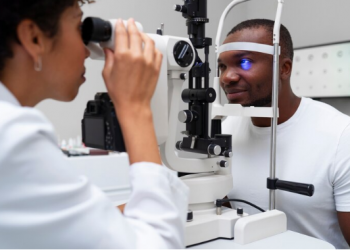Blood testing is a cornerstone of preventive health care in Thailand, allowing for early detection of conditions like diabetes, high cholesterol, and hormonal imbalances. It also supports ongoing management of chronic diseases and helps you monitor how well treatments or lifestyle changes are working.
Key Takeaways
- Early detection through blood testing helps catch issues before symptoms arise.
- Test types range from CBC and lipid panels to genetic and hormone analysis.
- Fasting and hydration are essential for accurate results.
- Costs vary by location; public hospitals are cheaper, but private clinics offer speed and convenience.
- Insurance may cover tests—check your plan details.
- Routine testing is essential for all ages as part of preventive health care.
Why Blood Tests Matter
Blood tests provide insights into your body’s internal functions and can detect silent conditions before they become serious. They are useful not only for diagnosis but also for tracking existing health concerns and adjusting treatment plans.
Types of Blood TestsCommon Blood Tests in Thailand
- CBC (Complete Blood Count): Measures blood cells to detect infections or anemia.
- BMP and CMP: Monitor electrolytes, kidney, and liver function.
- Lipid Panel: Assesses cholesterol and heart health.
Specialized Tests
- Autoimmune Screening: Identifies conditions causing chronic symptoms.
- Hormonal Testing: Assesses thyroid, testosterone, or estrogen balance.
- Genetic Screening: Highlights inherited risk for diseases.
These advanced tests are usually prescribed when symptoms require deeper investigation and may not be available at all clinics.
Preparing for Your Blood Test
For accurate results:
- Fast for 8–12 hours if required (common for glucose or lipid panels).
- Stay well-hydrated to ease blood collection.
- Avoid alcohol, caffeine, and heavy meals beforehand.
- Ask your provider about specific instructions.
What to Expect During Testing
Most tests involve venipuncture (drawing blood from a vein), while simpler tests may use a finger prick (capillary sampling). While you might feel a quick pinch, the process is usually fast and straightforward.
Understanding Your Results
Your results are compared to normal ranges, which can vary by age, sex, and testing method. If something is outside the expected range, your doctor will explain what it means and whether further testing or lifestyle changes are needed. Don’t panic—single results rarely tell the full story.
Costs and Accessibility
Blood test pricing in Thailand depends on the clinic type:
- Public hospitals: Lower costs, but longer wait times.
- Private clinics: Faster service, more comfort, higher prices.
Urban areas like Bangkok offer more choices. Insurance may help cover costs, so confirm what’s included in your plan.
Choosing a Clinic
Look for accredited clinics with good reviews, experienced staff, and up-to-date equipment. Location, cost, and wait times are also important factors. Always prioritize safety and quality over price alone.
Preventive Health Matters
Regular blood tests are a powerful tool in preventing serious illness. Even if you feel healthy, routine screenings can uncover early signs of issues. Staying proactive allows you to make better choices around diet, exercise, and lifestyle.
Final Thoughts
Getting a blood test in Thailand isn’t just a routine procedure—it’s a window into your health. Whether it’s your first time or part of your regular check-up, take it seriously. The insights it provides could be the difference between early treatment and a missed warning sign.









